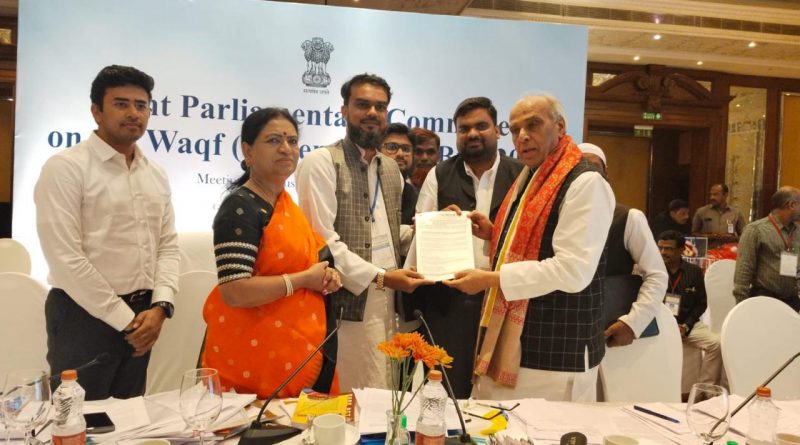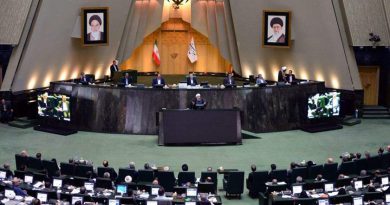OPINION: Waqf for the People, Not Politicians—India’s Bold Reform Move
Minister of Minority Affairs, Kiren Rijiju introduced the bill rooted with history, practicality, and the realities faced by Pasmanda community.
On April 2, 2025, the Lok Sabha bore witness to a remarkable display of democratic resilience and legislative fortitude as the Government of India successfully passed the Waqf (Amendment) Bill, 2025, after a marathon 12-hour debate. This historic achievement is not merely a legislative victory but a testament to the strength of India’s democratic institutions, the meticulous process undertaken by the government, and the unwavering unity of the National Democratic Alliance (NDA).
The journey of the Waqf (Amendment) Bill, 2025, has been one of deliberation and inclusivity. Recognizing the complexity and sensitivity of the issue, the government wisely referred the bill to a Joint Parliamentary Committee (JPC) for thorough scrutiny. The JPC, chaired by Shri Jagdambika Pal and comprising members from across the political spectrum, conducted extensive consultations, gathering inputs from stakeholders, experts, and civil society. Even the All India Pasmanda Muslim Mahaaz had the opportunity to present its suggestions and objections.
This process ensured that the legislation was not rushed but refined through a rigorous examination, addressing concerns while strengthening its framework. The successful passage of the bill in the Lok Sabha—by a decisive margin of 288 votes in favor to 232 against—reflects the confidence that the NDA coalition reposed in the government’s vision and the robustness of the JPC’s efforts. The debate was marked by intense exchanges, with the government defending the bill as a measure to improve Waqf property management, while the opposition criticized it as unconstitutional and anti-minority.
Minister of Minority Affairs, Kiren Rijiju introduced the bill rooted with history, practicality, and the realities faced by Pasmanda community. Waqf properties were originally meant for the welfare of the underprivileged, yet they have rarely served their intended purpose. Instead, over the years, they have become a playground for politicians, Waqf Board officials, and Mutawallis (caretakers), who have manipulated these assets for personal gains. The rampant corruption and mismanagement of Waqf properties have led the government to intervene and introduce amendments.
While many Muslim leaders and organizations are vehemently opposing the bill, All India Pasmanda Muslim Mahaaz considered it essential to acknowledge the dire need for reforms. Waqf properties hold vast potential to uplift marginalized Muslim communities, particularly the Pasmanda Muslims, who form the majority but have historicaly been neglected. Unfortunately, these properties have been plagued by corruption, illegal encroachments, and poor administration. AIPMM actively participated in the JPC meetings on the Waqf (Amendment) Bill, offering a series of constructive suggestions to enhance the legislation. The Ministry of Minority Affairs, recognizing the merit of AIPMM’s inputs, accepted several key recommendations, reflecting a commitment to inclusivity and efficiency in Waqf management.
These include the introduction of a “Waqf by User” provision to safeguard existing Waqf properties, the establishment of an appellate system within Waqf Tribunals to ensure fair dispute resolution, and measures for the efficient management and maintenance of Waqf records to promote transparency. Additionally, the ministry embraced AIPMM’s call for regular audits of revenue from rent, lease, and sub-lease to curb financial mismanagement, alongside the inclusion of Pasmanda Muslims and women in the management of Waqf Boards, ensuring diverse representation and addressing long-standing demands for equity within the community. This collaboration between AIPMM and the government underscores a progressive step toward reforming Waqf administration in India.
The Opposition’s Rhetoric and Fear-Mongering
One of the biggest issues with the current discourse surrounding the bill is the irresponsible approach of the opposition and certain Muslim organizations. Instead of constructively engaging with the government to suggest practical improvements, they are using the bill as a tool to incite fear and insecurity among common Muslims.
The rhetoric surrounding the bill is focused more on accusing the government of anti-Muslim motives rather than addressing the real issues plaguing Waqf institutions. If these organizations had properly managed the Waqf system over the years, there would have been no need for government intervention in the first place.
By spreading propaganda and half-truths, these groups are attempting to politically mobilize Muslims rather than ensuring genuine reforms. Pasmanda Muslims, who have historically been denied the benefits of Waqf, must not fall prey to these misleading narratives. Instead, we must demand concrete improvements that will truly help our community.
The blind opposition by certain Muslim leaders will only serve political interests rather than benefiting the community. It is time for Pasmanda Muslims to take charge of the narrative and demand reforms that genuinely serve the underprivileged.
Pasmanda Muslims, who have been historically sidelined, must not allow themselves to be used as pawns in political battles. Instead, we should advocate for meaningful reforms, ensuring that Waqf properties are managed efficiently, transparently, and justly. This is a crucial opportunity to hold the system accountable and demand a fair share of Waqf benefits for the most disadvantaged members of our community.
The opposition and certain Muslim organizations must also reflect on their own failures in managing Waqf properties before blaming the government. Instead of spreading fear and misinformation, they should work towards ensuring better governance and accountability within the Waqf system.
During the marathon debate on the Waqf (Amendment) Bill, 2025, in the Lok Sabha on April 2, 2025, Indian Union Home Minister Amit Shah delivered a masterful performance that left the opposition reeling. Armed with a barrage of facts, statistics, and a clear articulation of the bill’s intent, Shah dismantled the opposition’s arguments, rendering them speechless. He meticulously schooled them on the purpose and proper utilization of Waqf properties, emphasizing the need for transparency and accountability—principles the bill seeks to enshrine. Shah’s commanding presence turned the tide of the debate, exposing the opposition’s rhetoric as hollow in the face of evidence.
BJP MP Ravi Shankar Prasad reinforced the government’s stance, asserting that including women and Pasmanda Muslims in the management of Waqf Boards is not just a reform but a constitutional right, amplifying the bill’s progressive ethos. The opposition, despite its fervor, found itself silenced, unable to counter the government’s robust case. AIMIM leader Asaduddin Owaisi attempted to score theoretical points, raising some valid concerns, but his credibility was undermined by allegations that he and his party have encroached upon 80% of Waqf properties in Hyderabad and Telangana.
As the Urdu proverb goes, “Chor ki daadhi mein tinka”—the thief’s beard betrays a straw—Owaisi’s critique rang hollow, overshadowed by his own questionable record. The debate, thus, emerged as a triumph for the government’s clarity and resolve.
However, the true success of these amendments hinges on their effective implementation, which we anticipate will yield positive outcomes for all stakeholders. For Pasmanda Muslims, in particular, embracing a balanced approach—supporting these reforms while actively participating in their execution—will be crucial to ensuring their upliftment. This historic moment offers hope for a more equitable future, provided the spirit of the law translates into tangible progress on the ground.
Disclaimer: Views expressed by writers in this section are their own and do not reflect Milli Chronicle’s point-of-view.



